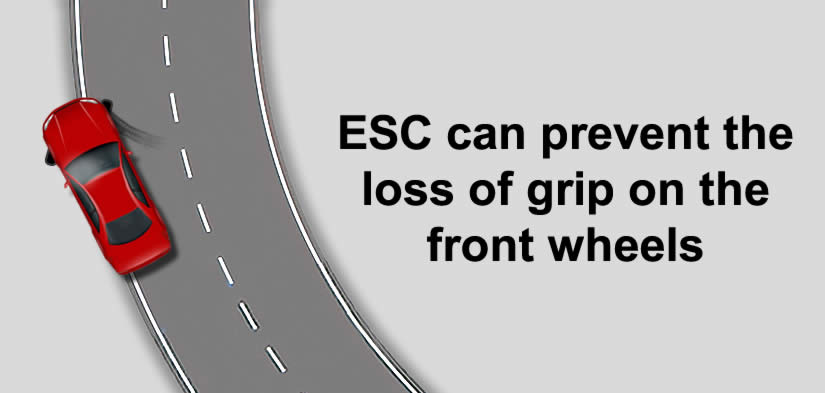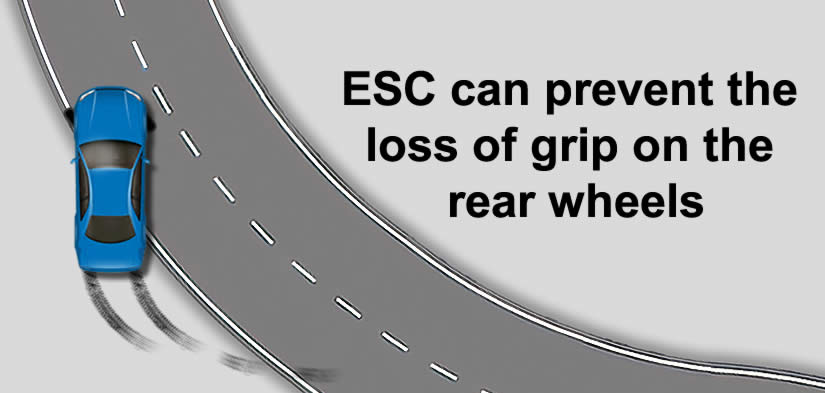Do You Need Electronic Stability Control?
If you’re asking whether you need Electronic Stability Control, then here’s some statistics. If your vehicle has Electronic Stability Control, you are:
- 32% less likely to have an accident due to driver-fault loss of control
- 59% less likely to roll your vehicle
- 25% less likely to be involved in a fatal road accident
With an array of sensors around your vehicle, Electronic Stability Control (ESC) constantly monitors your driving and detects any loss of control far more quickly than any human can. Once any inconsistencies in your vehicle’s stability have been detected, ESC instantly makes corrections by automatically operating the vehicle brakes or by reducing engine power.
Should Electronic Stability Control be Turned Off?
No, you should almost always leave Electronic Stability Control switched on. ESC is always on by default, each time you start your car. Reasons to keep ESC switched on are:

When driving round corners, a loss of grip can occur at the front wheels – this is called understeer. ESC will quickly detect this and on a right-turn corner, immediately begin braking the rear-right wheel to bring the car back under control.

Alternatively, you may lose grip on the rear wheels (oversteer). ESC will detect this and on this right-turn corner, the front-left brake will be applied to keep the car stable and under control.
ESC has the ability to automatically brake individual wheels. The loss of vehicle control and corrective actions are often processed and carried out so quickly, that drivers are usually unaware of what’s taken place.
Why is There an Electronic Stability Control Off Button?
You should almost always keep Electronic Stability Control Switched on, however, there are some rare exceptions. If you take your road car to the race track, you’ll likely want to turn ESC off. Race car drivers push their vehicles to the limit and ESC will interfere with this, so they almost always switch ESC off.
Another reason for switching ESC off is if your car gets stuck in snow or mud. Specifically, this is the traction control part of ESC that needs to be disabled because it prevents your wheels from spinning. Some vehicles have a separate traction control button, for others, traction control is part of the ESC system.
Do all Cars have Electronic Stability Control?
It depends on where your car is made and exported to. If you live in the European Union, all new cars are equipped with Electronic Stability Control as standard since 2014 and in the USA, ESC has been fitted as standard on all passenger cars and light trucks since 2012.
Countries such as Argentina, Brazil, China, India, Indonesia, Mexico and South Africa are yet to mandate ESC technology for new vehicles manufactured, though Argentina and Brazil are due to start applying ESC regulations in 2020.
| More about Electronic Stability Control (ESC) |
|---|